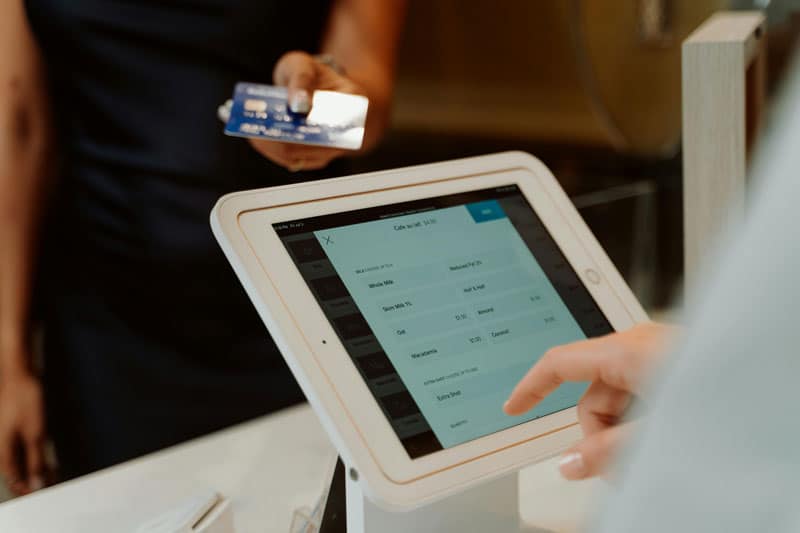As cyber threats grow more sophisticated, businesses of all sizes are rethinking how they protect sensitive customer data—especially when it comes to payments. Tokenization has become one of the most effective tools in securing digital transactions and preventing credit card fraud. Instead of storing or transmitting actual card numbers, tokenization replaces this data with a randomized string of characters known as a token. These tokens are useless to hackers and can’t be reverse-engineered, making them a powerful addition to any secure credit card processing strategy. For merchants navigating PCI compliance, fraud prevention, and customer trust, integrating tokenization into their payment workflows isn’t just smart—it’s essential.
What Is Tokenization and How Does It Work?
Tokenization is a data security method that substitutes sensitive cardholder information with a unique, non-sensitive token. These tokens are randomly generated and stored securely by a payment processor or third-party tokenization service. When a customer makes a payment, the token is used instead of the real card number to authorize the transaction. Because the token has no exploitable value, even if it’s intercepted during transmission or stored in a compromised database, it poses no risk[1]. For businesses that rely on recurring payments, mobile apps, or stored cards, tokenization allows for seamless transactions without the liability of holding sensitive financial data. It’s a game-changer for businesses pursuing secure credit card processing without sacrificing customer convenience.
Why Tokenization Matters in Today’s Merchant Environment
Merchants are facing more scrutiny than ever when it comes to payment security. With data breaches and chargeback fraud on the rise, regulators and customers alike expect companies to invest in systems that protect sensitive information. Tokenization dramatically reduces the risk of storing cardholder data, making PCI compliance easier and reducing the chances of a security breach[2]. It also enhances customer experience by enabling features like one-click checkout and recurring billing without repeatedly entering card details. Whether you’re operating a boutique retail store or managing a high-volume eCommerce platform, tokenization adds a critical layer of defense that supports both trust and scalability[3]. For many ecommerce merchant account providers, tokenization has become a standard component of their fraud prevention suite.
Enhanced Data Security
By removing actual credit card numbers from your systems, tokenization significantly reduces your data breach liability. Even if your servers are compromised, attackers can’t retrieve usable payment information.
Simplified PCI DSS Compliance
Since you’re not storing cardholder data, tokenization lowers your PCI scope. That means fewer security controls, less documentation, and lower compliance costs for your business.
Supports Recurring and Stored Payments
Tokenization allows merchants to store customer payment credentials safely, making it ideal for subscription models, memberships, or repeat purchases. It enables convenience without compromising data security.
Reduces Chargeback Fraud
With secure, tokenized transactions, it’s easier to trace payments and verify customer identities. This discourages fraudulent disputes and strengthens your case in chargeback challenges.
How Tokenization Integrates with Merchant Processing Services
Many modern merchant processing service providers include tokenization by default in their payment gateway or virtual terminal offerings. Integration typically involves APIs that securely transmit payment data and return a token for future use. For merchants, the key is working with a processor that offers seamless tokenization across channels—whether online, mobile, or in-store. Some systems allow token reuse across platforms, enabling omnichannel payment experiences without added security risk. Businesses should ensure their credit card processing service supports token lifecycle management, including the ability to update expired cards or remove unused tokens[4]. These backend tools make tokenization flexible and manageable, especially for merchants handling high transaction volumes or complex payment flows.

How to Choose a Tokenization-Ready Payment Partner
Does the provider offer end-to-end encryption?
Tokenization should work in tandem with encryption to ensure data is protected both in transit and at rest. Look for processors that offer both to maximize transaction security.
Is the tokenization system PCI compliant?
Not all tokenization systems are created equal. Confirm that your processor’s system meets PCI DSS requirements and that it reduces your PCI scope appropriately.
Can tokens be reused across multiple channels?
If you sell through multiple touchpoints—like a website, mobile app, and physical store—check whether the processor allows token reuse. This improves convenience and customer experience.
Does the provider support card updater tools?
For recurring billing, customers’ cards may expire or be reissued. A good processor will update the underlying token automatically, reducing failed transactions and customer churn.
Are tokens portable if you switch providers?
Some tokenization providers lock you into their ecosystem. If you change processors, you may lose access to stored tokens. Look for partners that support token portability or have migration tools.
What level of customer support is offered?
Implementing tokenization requires development and testing. Ensure your provider offers technical support, clear documentation, and account management to streamline the process.
The Future of Tokenization in Secure Payments
Tokenization is not just a trend—it’s quickly becoming a baseline requirement for businesses seeking to operate in the digital economy. As biometric verification, mobile wallets, and AI fraud detection become more common, tokenization will play a key role in securing complex transaction environments. It will also become essential for regulatory compliance, particularly as global data protection laws continue to evolve. Forward-thinking businesses are already pairing tokenization with advanced analytics to monitor fraud patterns and improve customer journeys. At the same time, ecommerce merchant account providers are building tokenization directly into checkout workflows to reduce friction without compromising safety. The future of secure payments will be tokenized, personalized, and invisible—giving customers the security they expect and merchants the infrastructure they need.
Conclusion
Tokenization has redefined how businesses handle sensitive payment data. By replacing cardholder information with secure, non-sensitive tokens, merchants can protect their systems from breaches, simplify compliance, and streamline customer experiences[5]. Whether you’re a startup or an enterprise seller, investing in tokenization ensures that your payment infrastructure is built to withstand evolving cyber threats. At Payment Nerds, we help merchants adopt tokenization as part of a broader merchant processing service strategy that prioritizes safety, scalability, and customer trust. The right credit card processing service can transform your risk exposure—and set the foundation for sustainable growth in a digital-first world.
Sources
- Visa. “Tokenization: Enhancing Digital Payments Security.” Accessed April 2025.
- Mastercard. “Understanding Tokenization in Payment Systems.” Accessed April 2025.
- PCI Security Standards Council. “Tokenization Guidelines.” Accessed April 2025.
- Forbes. “Why Tokenization Is the Future of Payment Security.” Accessed April 2025.
- Stripe. “How Payment Tokenization Works.” Accessed April 2025.











